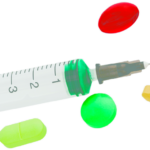Upadacitinib, as a tablet and oral solution, is now FDA approved to treat children age 2 years and older with active polyarticular juvenile idiopathic arthritis or psoriatic arthritis.


Michele B. Kaufman, PharmD, BCGP, is a freelance medical writer and editor. She is also a pharmacist at New York Presbyterian Hospital–Lower Manhattan campus. She has been a past guest lecturer at Touro College of Pharmacy in New York City for the Medical Writing elective. Dr Kaufman is a member of the New York City Society of Health-Systems Pharmacy, the New York State Council of Health-System Pharmacists, the Academy of Managed Care Pharmacy (AMCP)—Northeast Region Affiliate Chapter, the American Society of Consultant Pharmacists and the Empire State-Metropolitan NY Chapter of the American Medical Writers Association. She received her BS in Pharmacy from the University of Rhode Island (URI) College of Pharmacy and her Doctor of Pharmacy degree from Massachusetts College of Pharmacy and Allied Health Sciences in Boston. She also completed a Drug Information Fellowship at the URI Drug Information Center/Roger Williams Medical Center in Providence, R.I. Dr Kaufman is a registered pharmacist and is a Board-Certified Geriatric Pharmacist.

Upadacitinib, as a tablet and oral solution, is now FDA approved to treat children age 2 years and older with active polyarticular juvenile idiopathic arthritis or psoriatic arthritis.

The FDA has granted sarilumab its first pediatric indication, approving the agent to treat active, polyarticular juvenile idiopathic arthritis (pJIA) in patients who weigh at least 63 kgs.

The FDA’s latest label change for voclosporin adds data demonstrating its safety and efficacy, as well as a sustained renal response, in patients with lupus nephritis through three years of treatment.

The FDA has approved tocilizumab-aazg (Tyenne), the first tocilizumab biosimilar, for treating rheumatic diseases, as well as the new drug application for CB-101, a chimeric antigen receptor T cell therapy, for treating lupus nephritis and extra-renal lupus.

The FDA has accepted applications for three new indications for bimekizumab-bkzx, a humanized interleukin (IL) 17A and IL-17F antagonist: psoriatic arthritis, non-radiographic axial spondyloarthritis and ankylosing spondylitis.

The FDA has approved the first interchangeable biosimilars for denosumab.

In a phase 3 trial, treatment with VX-548 led to statistically and clinically significant improvements in pain compared with placebo.

A proposal for biosimilar use in the 2025 budget would allow substitution of any biosimilar for its reference product without an interchangeable designation. The hope is to increase biosimilar uptake, with the subsequent potential to increase product “competition, access and affordability.”1 In the 2025 budget proposal, the Biden administration noted that the legal distinction between…

Promising Results from a Phase 3 Study SAN DIEGO—An investigational liposomal formulation of dexamethasone sodium phosphate (TLC599) for intra-articular injection is being studied to treat patients with knee osteoarthritis (OA). George Spencer-Green, MD, MS, chief medical officer of Taiwan Liposome Company (TLC), Cambridge, Mass., presented recent data on this agent in a late-breaking abstract session…

In January, the U.S. Food & Drug Administration approved indomethacin in an oral suspension, a generic version of Indocin Oral Suspension. The agency also issued a boxed warning and updated label for denosumab, warning of the risks of severe hypocalcemia in patients with chronic kidney disease.